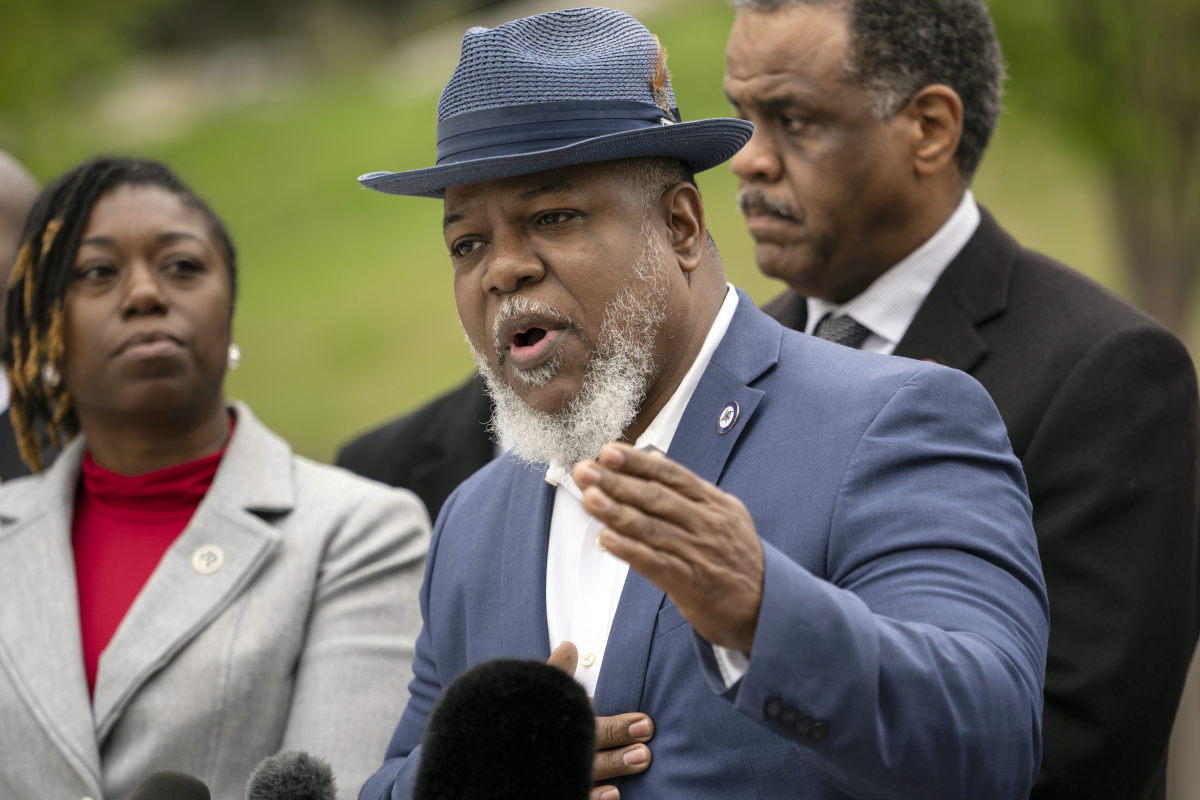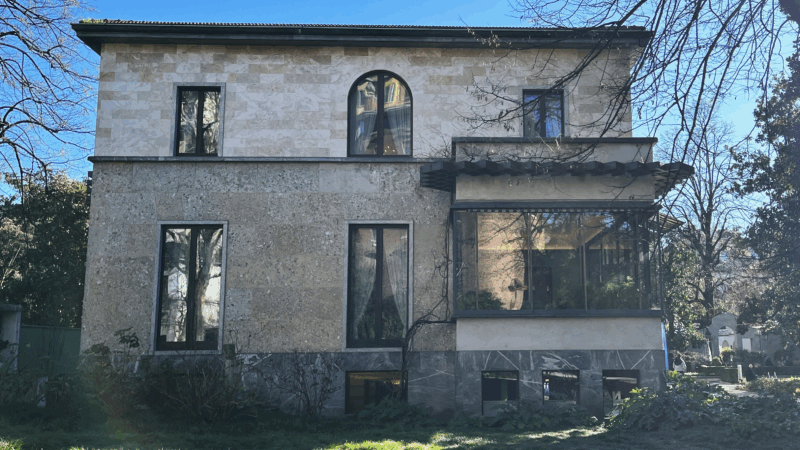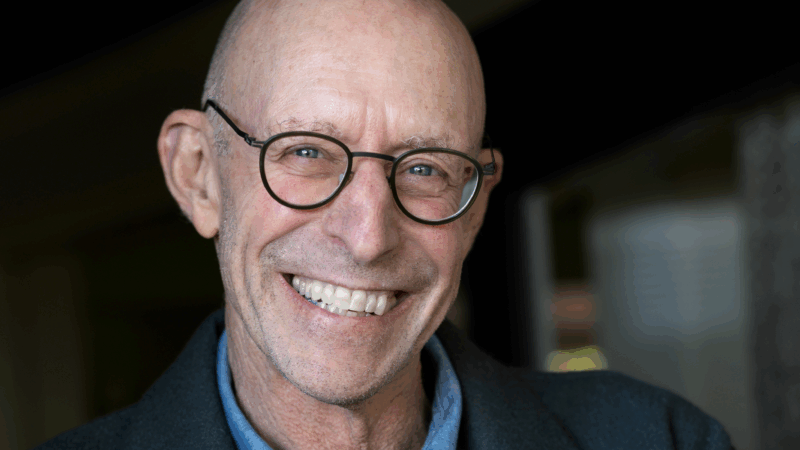Memphis sees opportunity in Trump’s plans for federal intervention
MEMPHIS, Tenn. – Carnell Vann Jr., trims a fade on an early morning client at his barber shop in the northern neighborhood of Frayser. As he sprays a can of hairspray for the finishing touches, he remembers his younger sister Marlanda.
“She was a lovable person. She just liked to love on people,” he says with a smile.
Marlanda was buried this past weekend, after someone shot into her car while she was driving last month. Vann says the bullet went in near one ear and out the other side. She was 47.
Vann says violence, particularly gun violence, happens almost daily in this neighborhood. Memphis has one of the highest violent crime rates in the country, according to FBI data – and although those numbers have been declining recently, Vann says it hasn’t felt that way.
“They try to come up with a solution, but none of the solutions work,” he says. “I’m hoping this solution right here works.”
Vann is talking about President Trump’s federal intervention to fight crime in Memphis, which began this week and is set to include more than a dozen federal policing agencies and the National Guard. And while troops are expected in the next two weeks, according to local officials, federal agents have already made nearly 100 arrests, according to the White House.

The task force is part of Trump’s broader strategy to deploy National Guard troops and increase federal law enforcement presence in cities, particularly those led by Democrats. Memphis is the first such effort in a Republican-led state. And while many in the city are wary, they’re also worn out from the violence, and ready to set politics aside if it means the city gets some help.
“People are tired,” says Tennessee state Rep. Antonio Parkinson, a Democrat.
He says this federal task force — and the National Guard deployment — isn’t something he would have asked for, but he strongly believes in making the most of it.
“That’s always been my position,” Parkinson says. “I don’t care what they throw at us, we will always take the lemons and make the best tasting lemonade that you’ve ever tasted out of it. And that’s honestly the spirit of Memphis.”

Details about the federal operation are still vague, even as it’s begun. Trump has said it will be a replica of an ongoing operation in Washington, D.C., where a surge in federal law enforcement along with National Guard troops has been in effect for more nearly two months.
While the Guard has been largely beautifying city parks and patrolling federal property, the White House says law enforcement officers there have made more than 2,000 arrests. An NPR analysis of arrest data found that a majority of the offenses were misdemeanors, and a sizable number were immigration-related.
Republican Tennessee Gov. Bill Lee — who supports Trump’s plan and requested the National Guard — has said the rollout will be slow, and it will last weeks, maybe months.
Rep. Parkinson says he recently met with Gov. Lee — something he does often — to voice his concerns about the federal intervention and advocate for long-term investment in resources for the city. But he’s had some fellow Democrats tell him he shouldn’t be working with Republicans.
“Why on God’s earth would you not want to be at the table with them?,” he says. “Because either you’re at the table with them to be able to have input into what’s going on, to protect your people, or you just let them go in based on all of their assumptions.”
That’s not to say everyone in Memphis is on board. Many have been protesting, arguing that the federal deployment is unnecessary, and that the city needs more funding to address poverty, jobs and education.
But those protests have been muted, especially compared to those in other cities facing National Guard deployments.

Thaddeus Johnson, a former high-ranking Memphis police officer and senior fellow for the Council on Criminal Justice, says he’s trying to maintain a sense of cautious optimism about the federal task force.
“We know that task forces that collaborate with local authorities, it really works,” he says. “And I think Memphis does have an opportunity to kind of be a laboratory, to be a model where state, federal and local authorities can work together.”
Memphis Democratic Mayor Paul Young and Police Chief Cerelyn “CJ” Davis have repeatedly said that federal agencies will be working in close partnership with the local police. And Johnson, who was born and raised in Memphis, points out that the situation in the city has been getting better, partially because some federal resources have been there for several months. But, Johnson says, it still needs help.
“So we would be remiss and unwise if we say that we don’t want to see how we can work with additional resources, even if it means being a political feather in the hat of a polarizing administration,” Johnson says.
But, he says, the people need to see a real and lasting benefit from it, which he says could be a challenge once Memphis is without the federal taskforce.
Britney Thornton is a county commissioner, representing several predominantly Black neighborhoods in Memphis. She recently voted in favor of a Shelby County resolution to stop the National Guard from coming. That resolution ultimately failed. A similar one failed in the Memphis City Council as well.

She says she thinks, at least at the county level, that there were concerns over what it would mean to stand up against the governor, and ultimately Trump.
“I think the thought is that if this force is coming, then you can get more with honey than vinegar,” she says.
She says it was a hard vote for her, because her constituents were split on the matter.
“I was conflicted every step of the way,” Thornton says. “But you know, when you unpack both sides, you really understand both sides want peace.”
Thornton doesn’t love the idea of the National Guard or more federal agents being in the city because she worries it could be bad for her community, if innocent people are swept up in arrests. But she says she’s aware it’s a bit of an experiment and that it could end up being positive.
“People here are always going to give you that first chance. And then, after that, it is going to be Memphis,” she says with a laugh – meaning if you break people’s trust, they will react.
But Thornton says for now she, and many others in the city, will wait, and hope for the best.
American Jordan Stolz speedskates to a third Olympic medal — silver this time
U.S. speedskater Jordan Stolz had a lot of hype accompanying him in these Winter Olympic Games. He's now got two gold medals, one silver, with one event to go.
Bad Bunny and J. Cole rule the pop charts
These days, the Super Bowl halftime show is a massive driver of the streaming, airplay and sales that fuel the Billboard charts. This week, Bad Bunny benefits from that influence.
Reporter’s notebook: My Olympic Lunar New Year
An NPR reporter covering the Olympics in Milan takes us on cultural side quests, to a hospitality house and a candy store.
Michael Pollan says AI may ‘think’ — but it will never be conscious
"Consciousness is under siege," says author Michael Pollan. His new book, A World Appears, explores consciousness on both a personal and technological level.
The U.S. and Canada set to square off in Olympic women’s ice hockey gold medal match
Canada was long the top dog of Olympic women's hockey. But with a win Thursday, the Americans could do more than earn a third gold medal — they could prove the sport's balance of power has shifted.
Amazon dethrones Walmart as the world’s biggest company by sales
In a slow-motion race of two retail behemoths, Amazon's trump card was its lucrative cloud-computing business.






